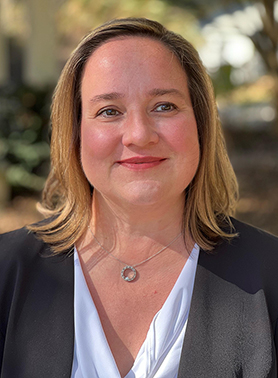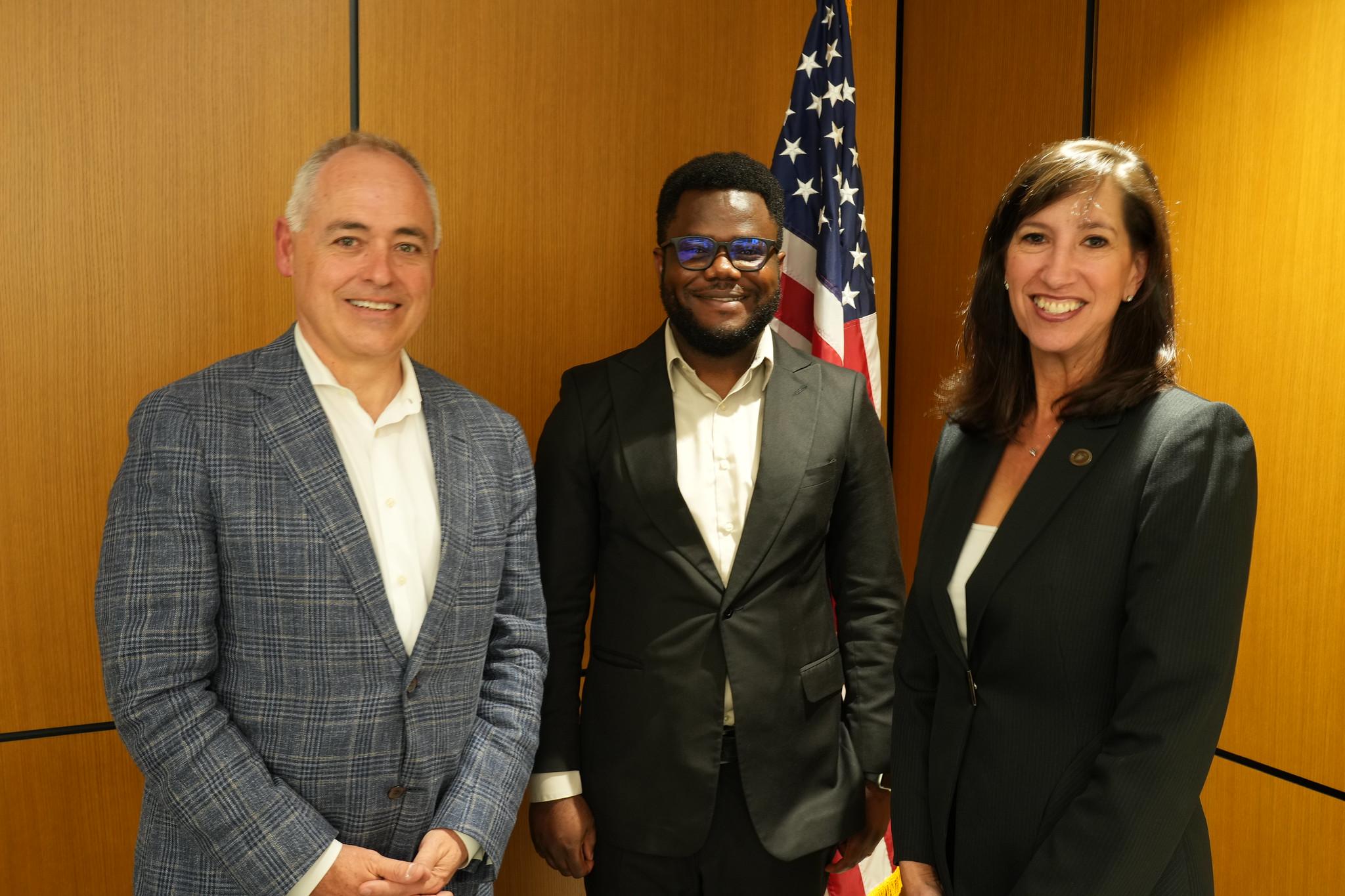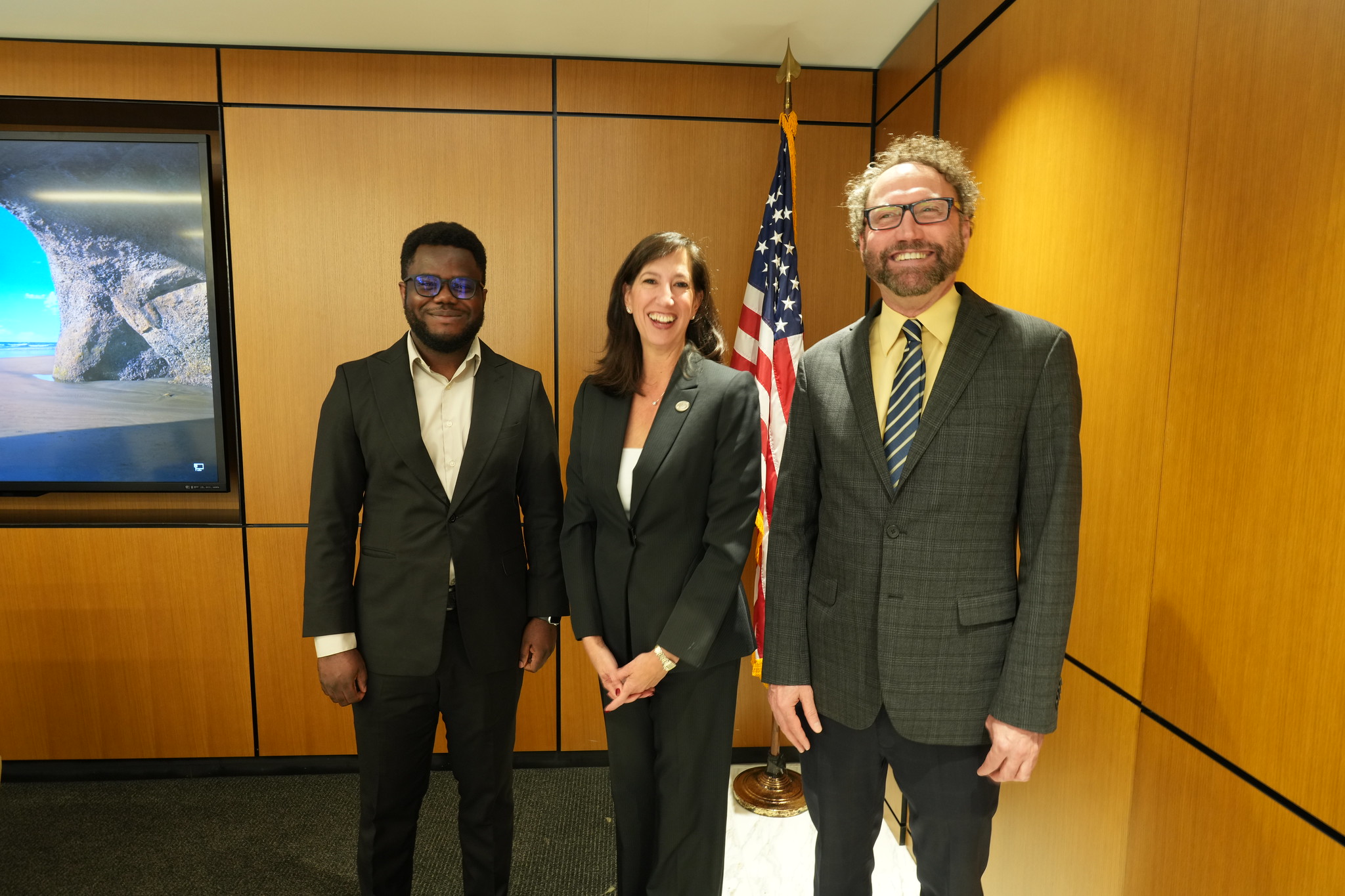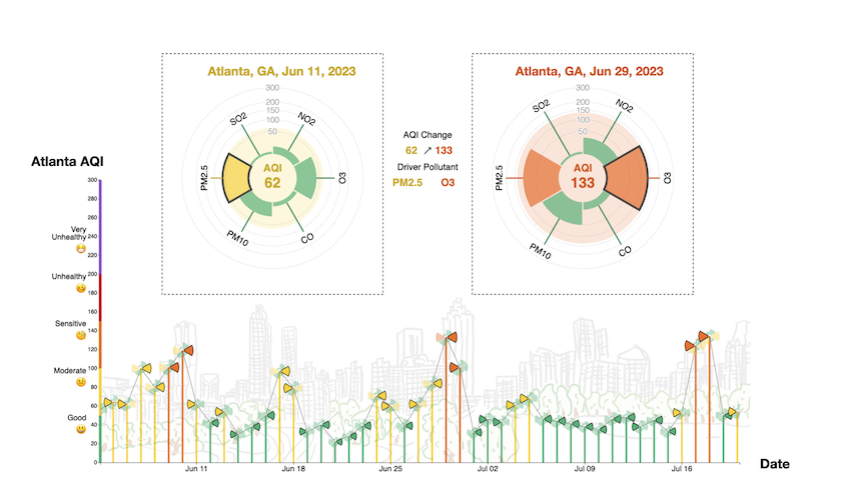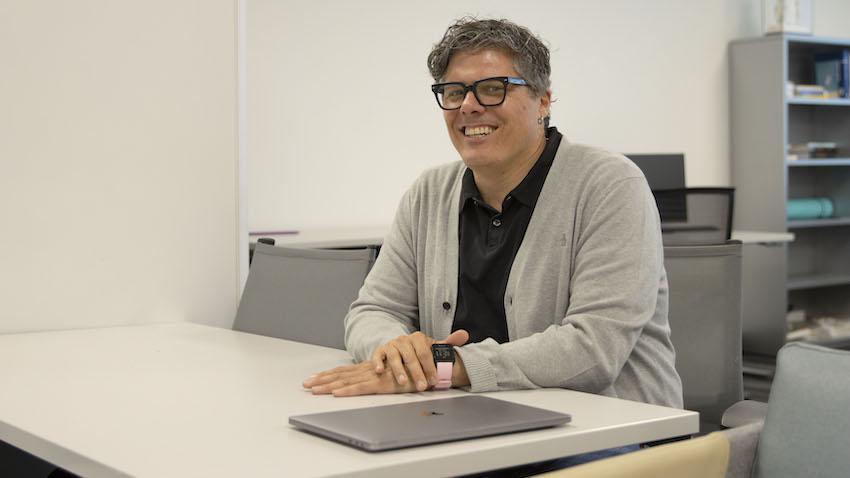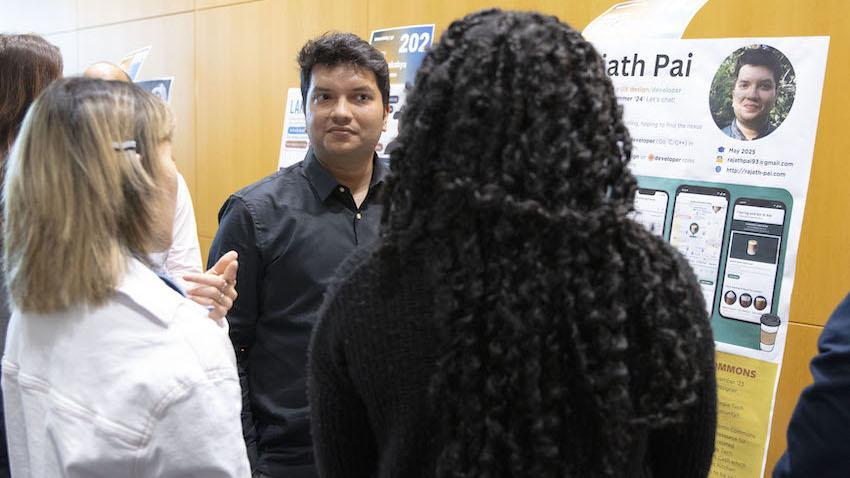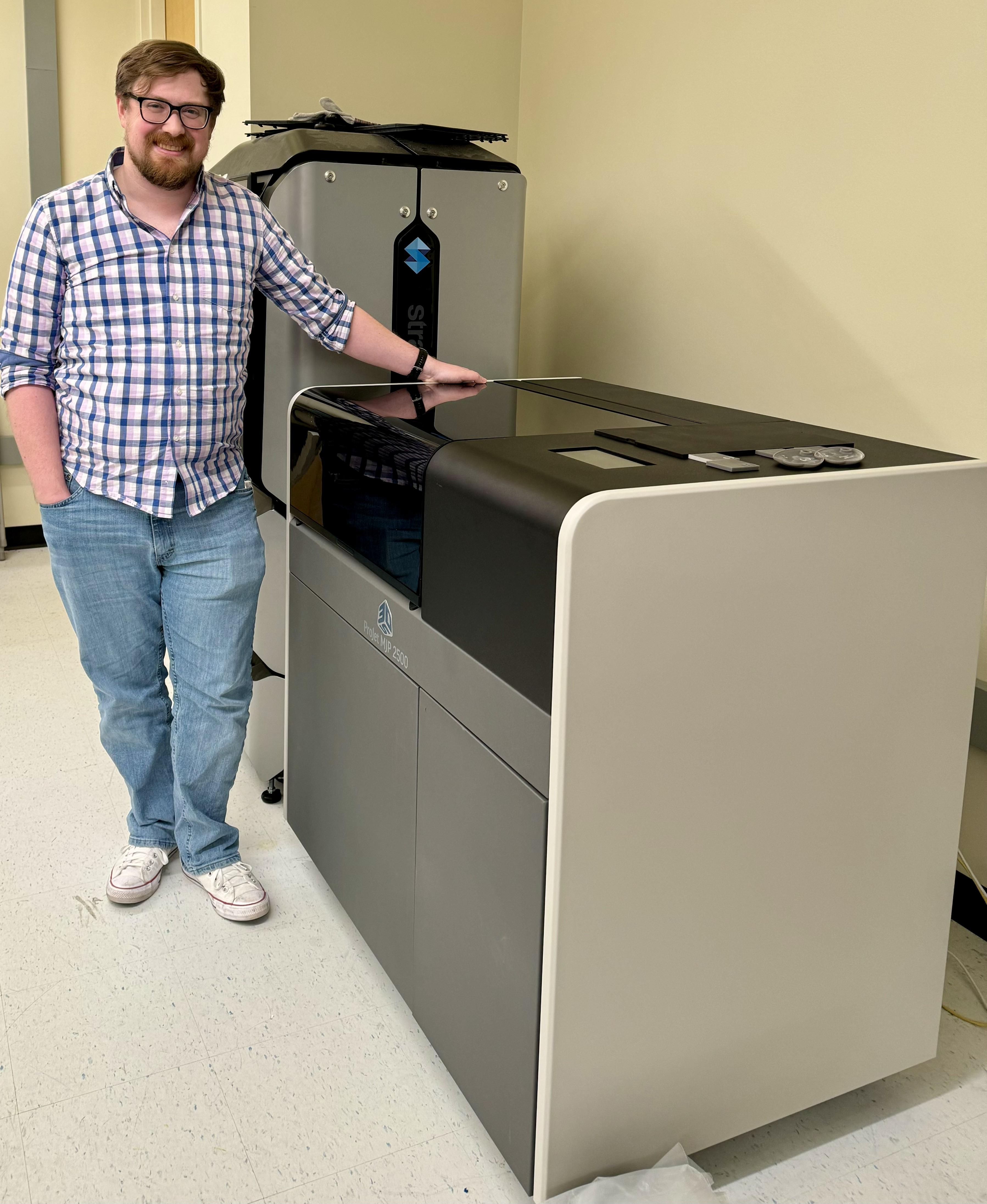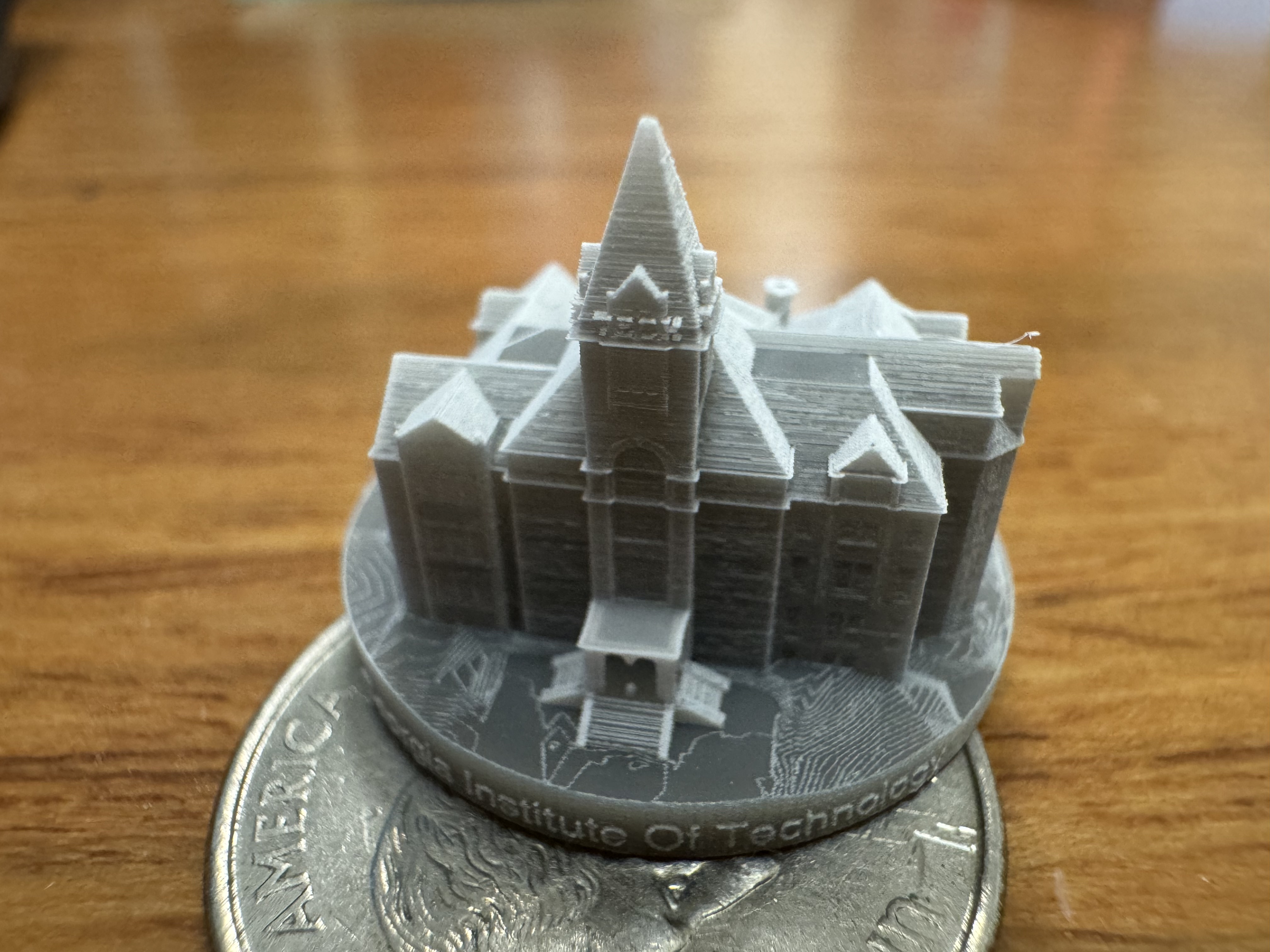Through the Master’s Program in Human-Computer Interaction (MS-HCI) at Georgia Tech, students like Rajath Pai don’t have to wait long to gain first-hand industry experience.
Pai, a first-year student in the two-year MS-HCI program, has already helped Starbucks design its app to entice customers to try new menu items.
Pai and fellow MS-HCI students had more opportunities on Feb. 6 to meet industry representatives during Interactivity@GT.
Organized by MS-HCI at Georgia Tech and the Institute for People and Technology (IPaT), Interactivity@GT replaces the former GVU Spring Showcase. The event provides Ph.D. and master’s students with the chance to promote their research and design work.
A keynote speech by Karen Holtzblatt, co-founder of InContext Enterprises and co-creator of contextual inquiry, kicked off the half-day event. Contextual inquiry is considered industry standard practice for gathering field data to understand how technology impacts the way people work.
After the keynote, MS-HCI students made one-minute pitches about their work to industry representatives for potential employment opportunities. Along with Ph.D. students representing IPaT, the MS-HCI students then showcased their research through a two-hour poster and networking session.
“I think this event is unique,” said Dick Henneman, director of the MS-HCI program at Georgia Tech. “Other programs might have a job fair, but our students are making connections with alumni and other company-sponsored projects.
“Right now, there’s a bit of a slump in the tech market. Our students have something unique that sets them apart, and that’s being from our MS-HCI program, which distinguishes them from the person who went to a 12-week UX bootcamp.”
Companies participating in Interactivity@GT included Starbucks, Cox Enterprises, Delta Air Lines, FanDuel, HSBC, NCR, State Farm, Infoblox Home Depot, and Verizon.
Carrie Bruce, the assistant director of the MS-HCI program, said the program has built a strong network of connections since it started almost 30 years ago. MS-HCI alumni have provided a stable core for that network.
“We’ve pushed out a lot of fabulous students who’ve been in industry for 10 years or more, and now they’re in leadership positions,” she said. “We’ve got people who know our program from varied perspectives at companies around the world.”
Pai said he connected with an MS-HCI alumni working at Starbucks who was happy to advise him on his first-year research project.
“She gave us some much-needed industry feedback and guided us on how we’re supposed to do something or what we could have done better,” he said.
Working with the alumna, Pai gained insight into how Starbucks customers think about their environment when they’re using the app. Pai found that many customers use the app to order items they are already familiar with, and they are unlikely to deviate from their routine.
Pai suggested the idea of drink maps, which tell customers which menu items are trending at nearby stores. Seeing a drink they haven’t tried trending at other stores might persuade customers to try something new.
“The experience gives us immediate insight into what is expected of us in industry,” Pai said. “We’re learning the methods in class but also learning how they are applied in industry, which helps us to build things and processes that would work in industry.”
The MS-HCI program at Georgia Tech is a four-semester interdisciplinary program and a collaborative effort among four Georgia Tech schools — the School of Interactive Computing, the School of Industrial Design, the School of Literature, Media, and Communication, and the School of Psychology.
For more information about the program and the admission process, visit the MS-HCI website.
Visit the original story posted by the College of Computing to see more pictures.
